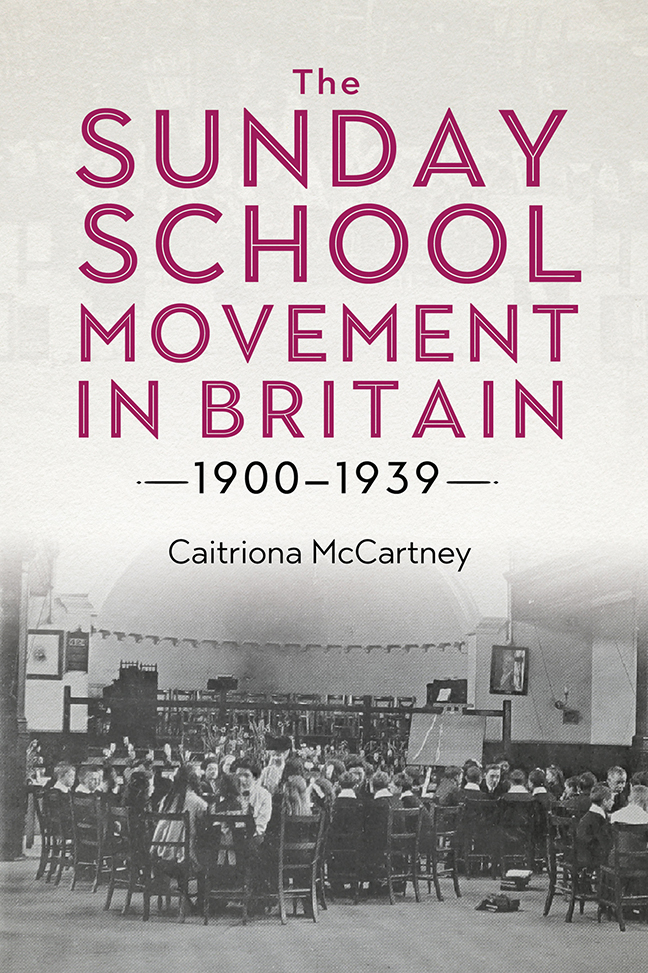Book contents
- Frontmatter
- Dedication
- Contents
- List of Illustrations
- Acknowledgments
- List of Abbreviations
- Introduction
- 1 British Sunday Schools before the First World War, 1900–14
- 2 British Sunday Schools and the First World War, 1914–18
- 3 Sunday Schools in the Religious Life of the British Forces, 1914–18
- 4 British Sunday Schools between the World Wars, 1918–39
- 5 Teaching, Training, and Teachers: Reforming the Sunday School Movement, 1900–39
- 6 British Sunday Schools and the World, 1900–39
- Conclusion
- Bibliography
- Index
- Studies in Modern British Religious History
Conclusion
Published online by Cambridge University Press: 11 January 2024
- Frontmatter
- Dedication
- Contents
- List of Illustrations
- Acknowledgments
- List of Abbreviations
- Introduction
- 1 British Sunday Schools before the First World War, 1900–14
- 2 British Sunday Schools and the First World War, 1914–18
- 3 Sunday Schools in the Religious Life of the British Forces, 1914–18
- 4 British Sunday Schools between the World Wars, 1918–39
- 5 Teaching, Training, and Teachers: Reforming the Sunday School Movement, 1900–39
- 6 British Sunday Schools and the World, 1900–39
- Conclusion
- Bibliography
- Index
- Studies in Modern British Religious History
Summary
In 1915, the Sunday School Chronicle printed the following remark made by Sir George Smith at the Wesleyan Methodist Conference: ‘the Sunday School teachers are the great unpaid branch of the civil service of the country. They are of vital importance to the country. They are of vital importance to the State. The greatness of the British race depends upon a vigorous Sunday School life’. This quotation very much demonstrates the high regard in which Sunday schools were held in British religious and social life. British Sunday schools were a significant tool of religious socialisation and education throughout much of the twentieth century. Those who lived through the First World War had their early religious experiences and education at the schools.
While the schools are not attended as widely today, their importance should not be underestimated. The influence of the schools lives on through those who passed through them in the 1950s, 1960s, and 1970s. Popular celebrities of today, such as Ewan McGregor, Melvyn Bragg, Richard Wilson, and Anthea Turner, attended Sunday school at some point during their childhood. To understand the influence of Christianity in Britain requires a better understanding of the history of the Sunday schools. This was the institution where many were exposed to Christian faith, hymnody, and imagery.
However, despite the important role Sunday schools have played in the religious and social life of the British nation, there has been relatively little research that takes their history beyond the outbreak of the First World War. Studies that have briefly mentioned schools after the war rarely consider them in their own right. For instance, the research of Callum Brown, Hugh McLeod, and Sarah Williams produced excellent studies, but they are focused mainly on the lives of adults and the churches. Additionally, the little attention the schools have received has been rather critical. Historians such as Jeffrey Cox and Alan Wilkinson have suggested that they were ineffective tools of religious education. Wilkinson even argued that they did not prepare their scholars for the fighting front. Likewise, the experience of Sunday schools during the interwar years has received little scholarly attention.
Therefore, given the limitations of, and existing debates in, the historiography, this book has addressed the significance of British Sunday schools through its six chapters.
- Type
- Chapter
- Information
- The Sunday School Movement in Britain, 1900-1939 , pp. 175 - 180Publisher: Boydell & BrewerPrint publication year: 2023

